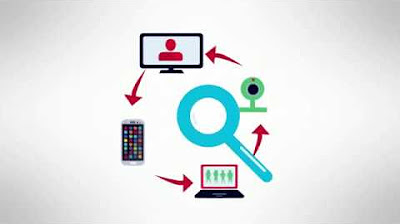What to Put Into a Career Development Plan
Summary
TLDRCreating a career development plan is essential for managers to show they value their team members and want to help them grow. The process involves setting clear career goals, mapping out potential roles, identifying the skills and experiences needed, and filling any gaps through targeted actions. This not only boosts employee motivation and retention but also improves team performance and the manager-employee relationship. The video provides a step-by-step guide, including creating a career map, deciding on the next roles, researching qualifications, and developing an action plan to achieve career progression.
Takeaways
- 🎯 Creating a career development plan with team members demonstrates value and investment in their growth.
- 📈 Developing employees' skills is beneficial for motivation, retention, and improving team performance.
- 🤝 A strong career development plan can enhance the manager-employee relationship and contribute to company success.
- 🚀 Encourage employees to create their own career development plan if their manager doesn't initiate one.
- 🎓 Set a clear career goal for the employee, which can be adjusted over time but should be focused to aid career progression.
- 🗺️ Create a career map outlining potential roles and paths to reach the target position.
- 🔍 Research the skills, experience, and qualifications required for the next two roles in the career path.
- 🔄 Analyze skill and experience gaps between the current role and the desired future roles.
- 📋 Develop an action plan with specific tasks and projects to fill the identified skill and experience gaps.
- 📚 Provide a mix of self-motivated learning opportunities and job-integrated development activities.
- ⏰ Regularly evaluate progress with the team member to ensure milestones are met and goals are achieved.
Q & A
What is the primary purpose of creating a career development plan for team members?
-The primary purpose is to demonstrate value and investment in the team members' growth, improve their motivation, enhance retention, strengthen the manager-employee relationship, and increase the team's skill level, ultimately benefiting the company.
Why is it important for employees to develop their skills and deliver more for the business?
-Developing employees' skills is crucial for their professional growth, which in turn increases their motivation and reduces the likelihood of them leaving the company. It also improves the team's overall performance and efficiency.
What should be the time frame for a career development plan?
-A recommended time frame for a career development plan is five years or more, allowing for clear direction and long-term goals.
How can a manager support their team members in identifying their career goals?
-A manager can work with team members to decide on their career goals, considering their current position, aspirations, and the time frame they have in mind for achieving those goals.
What is the role of a career map in a career development plan?
-A career map shows the different routes available in terms of specific roles between the current position and the desired target role, helping team members visualize their career progression and identify suitable paths.
Why is it beneficial for a team member to know their next two roles in their career path?
-Knowing the next two roles provides a focused career development plan for the next five years, which helps team members stay motivated and gives the manager insight into their aspirations, aiding in retention and succession planning.
What should be included in the research of skills, experience, and qualifications needed for a career development plan?
-The research should identify the specific qualifications required, list and grade the skills and experiences needed for the next role, and consider the current skills and experiences of the team member to understand the gaps that need to be filled.
How can a manager help their team member fill the identified skill and experience gaps?
-A manager can create an action plan with specific actions such as task swapping, problem-solving, project assignments, cross-team collaboration, training others, and providing learning opportunities like courses and qualifications.
What is the significance of periodically evaluating progress in a career development plan?
-Regular progress evaluation ensures that both the team member and the business are investing in the development and that the team member is meeting the agreed milestones and targets, which is essential for the success of the career development plan.
How can team members be motivated to take initiative in their career development?
-By creating a mix of learning opportunities that require self-motivation and those provided as part of their day-to-day jobs, team members are encouraged to take an active role in their career growth.
What resources are available to help create career development plans?
-Templates and examples of career development plans can be found in the management skills hub, which can speed up the process of creating and implementing these plans for the team.
Outlines

هذا القسم متوفر فقط للمشتركين. يرجى الترقية للوصول إلى هذه الميزة.
قم بالترقية الآنMindmap

هذا القسم متوفر فقط للمشتركين. يرجى الترقية للوصول إلى هذه الميزة.
قم بالترقية الآنKeywords

هذا القسم متوفر فقط للمشتركين. يرجى الترقية للوصول إلى هذه الميزة.
قم بالترقية الآنHighlights

هذا القسم متوفر فقط للمشتركين. يرجى الترقية للوصول إلى هذه الميزة.
قم بالترقية الآنTranscripts

هذا القسم متوفر فقط للمشتركين. يرجى الترقية للوصول إلى هذه الميزة.
قم بالترقية الآنتصفح المزيد من مقاطع الفيديو ذات الصلة

Delegation | 60 Second Business

Building Psychological Safety In The Workplace (Amy Edmondson's 3 Steps for Managers)

Dicas para você ser um excepcional Líder de Vendas 😉

Teacher Career Change | Transferable Teacher Skills | 5 exciting career changes for teachers!

Being a Good Team Member

Dealing with Communication Challenges for Virtual Teams
5.0 / 5 (0 votes)
